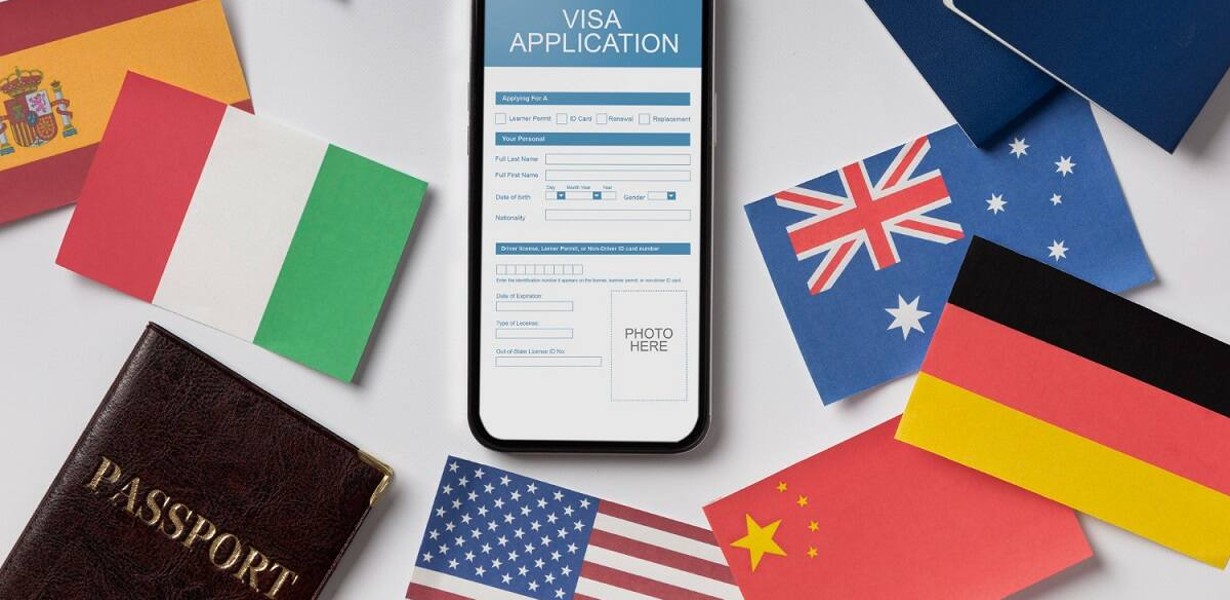
In a rapidly changing world, technology has reached every corner of our lives, including how we travel and manage our visas and documentation. The traditional way of handling paperwork is giving way to a digital revolution that simplifies and streamlines the entire process. In this blog, we will delve into the cutting-edge innovations in Visa and Documentation technology and how they are shaping the way we move across borders.
The Evolution of Digital Passports
Historical Perspective on Visas
To understand the digital revolution, let’s take a step back. Traditional visas and documentation processes have been cumbersome and time-consuming. Travelers often had to wait in long lines at embassies and consulates. However, things started to change with the introduction of e-visas and electronic travel authorizations (ETAs). These digital documents made applying for visas significantly easier.
The Emergence of Biometric Identification
One of the most significant advancements is the incorporation of biometrics. Modern passports and visas often include biometric data like fingerprints and facial recognition, enhancing security while expediting the clearance process at borders.
Blockchain Technology and Document Security
Blockchain in Visa and Documentation
Blockchain technology is at the forefront of the digital passport revolution. By using a decentralized ledger, it ensures the security of your documents. Your information remains tamper-proof and readily accessible, making it easier to verify your identity. This technology is particularly beneficial in reducing the risk of fraudulent documentation.
Mobile Passport Apps and Smart Devices
Revolution in Mobile Apps
Travelers are now equipped with innovative mobile passport apps that allow them to store their digital documents securely. These apps streamline the customs and immigration process by enabling you to submit your information electronically before arriving at your destination.
Smart Devices for Document Verification
Incorporating smart devices in the verification process has become a norm. Travelers can now use their smartphones to scan their documents, ensuring everything is in order. It’s a hassle-free way to ensure your documentation is always up-to-date.
Contactless Immigration and Automated Border Control
The Contactless Experience
In a post-pandemic world, contactless experiences have become the norm. Automated border control systems, such as e-gates, allow travelers to pass through immigration with minimal human interaction. This technology is not only convenient but also promotes safety and hygiene.
The Future of Visa-Free Travel
Visa-Free Agreements
Visa-free agreements between countries are on the rise, making it easier for travelers to explore new destinations without the hassle of applying for visas. These agreements promote tourism and trade while simplifying cross-border movement.
Digital Health Passports
The pandemic has accelerated the development of digital health passports. These passports store your vaccination and health records, making it easier to comply with health regulations when traveling.
Final Words
As the world becomes more interconnected, the digital passport revolution is set to continue evolving. Embracing these technological advancements will not only make your travels smoother but also enhance security and convenience. Stay updated with the latest innovations in Visa and Documentation technology to make the most of this revolution.
Commonly Asked Questions
1. How do mobile passport apps work?
Mobile passport apps allow travelers to store their digital documents, such as visas and identification, securely. They often enable travelers to submit information electronically before arriving at their destination, expediting the immigration process.
2. What are e-gates in automated border control?
E-gates are automated border control systems that facilitate contactless immigration. Travelers can use these gates to pass through immigration with minimal human interaction, promoting convenience and safety.
3. Are digital health passports mandatory for travel post-pandemic?
While digital health passports are not mandatory for all travel, they have become increasingly common for international trips. They store vaccination and health records, making it easier to comply with health regulations.
4. How has blockchain technology improved document security in Visa and Documentation tech?
Blockchain technology ensures document security by using a decentralized ledger that is tamper-proof. It makes it easier to verify the authenticity of documents and reduces the risk of fraudulent documentation.
5. What is the future of visa-free travel?
The future of visa-free travel looks promising, with more countries entering into agreements that allow visa-free entry. Additionally, digital health passports are likely to play a significant role in facilitating travel post-pandemic.




